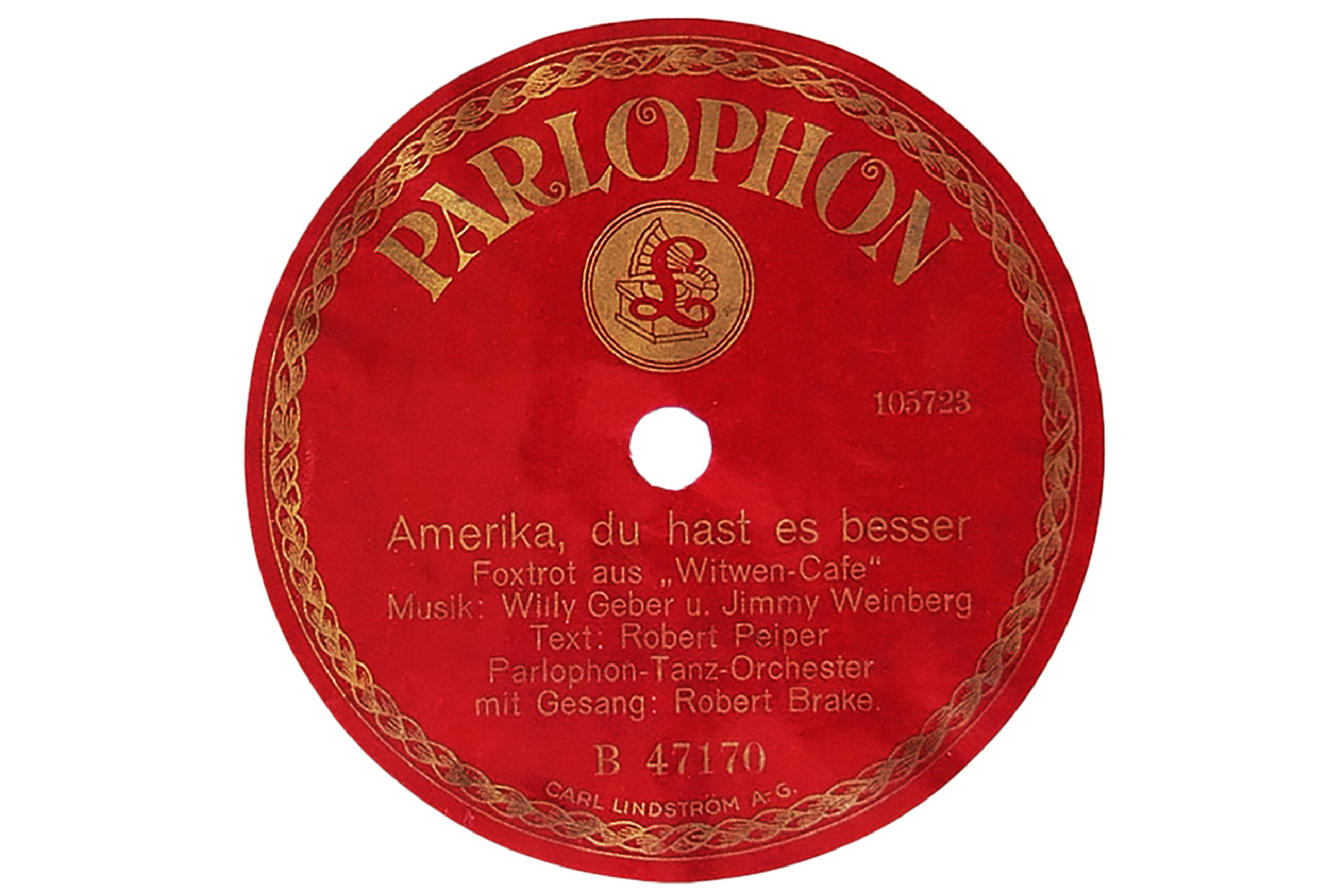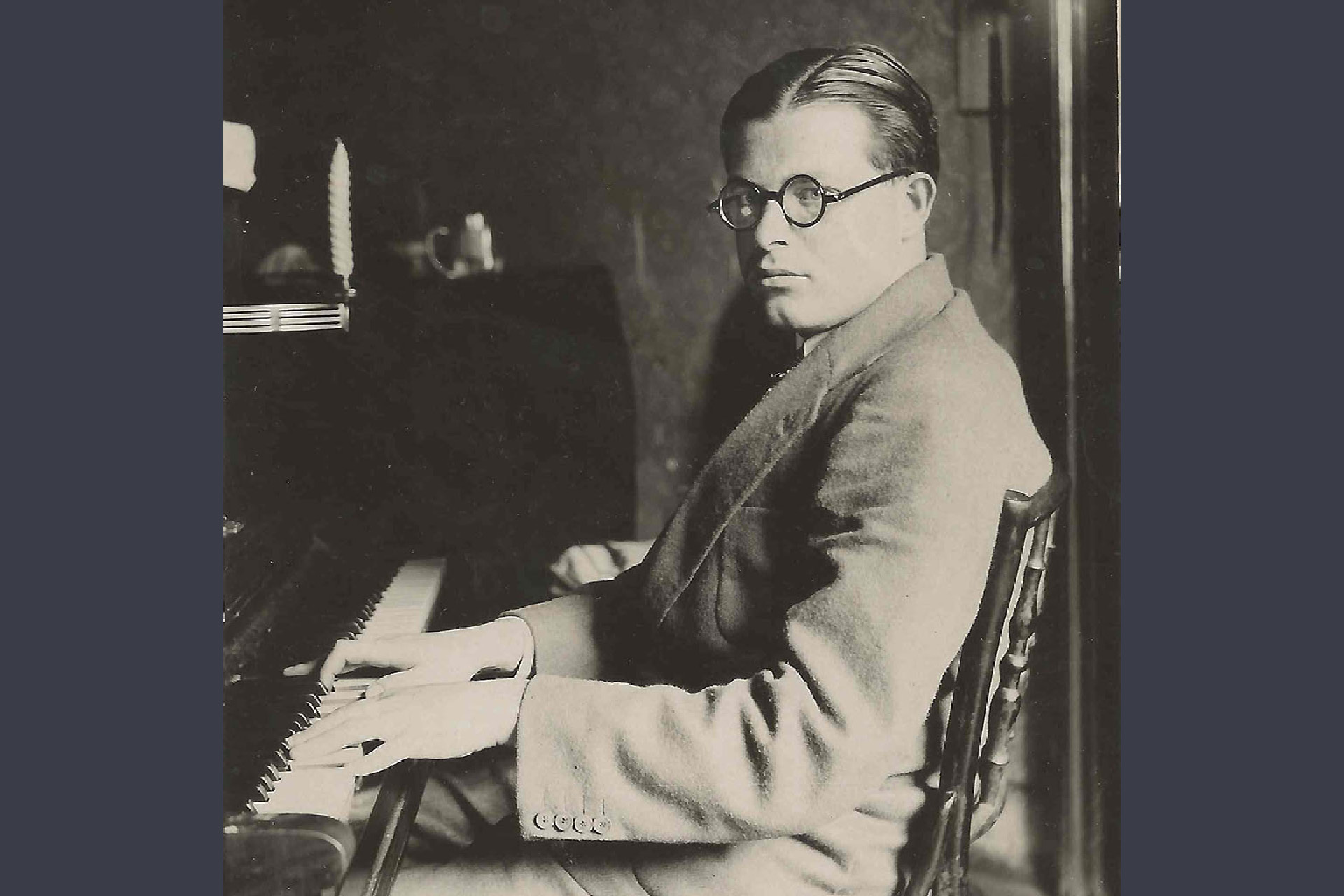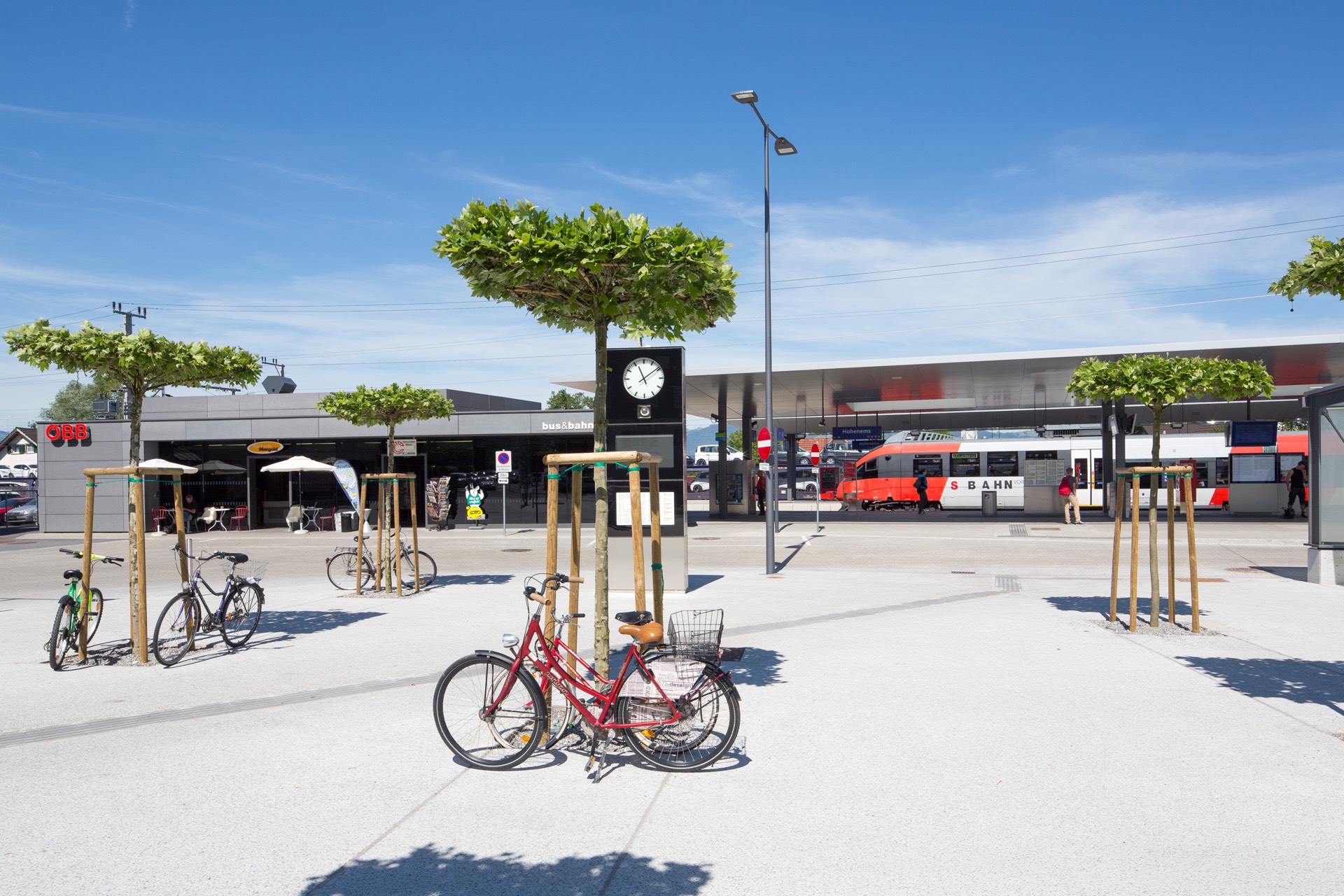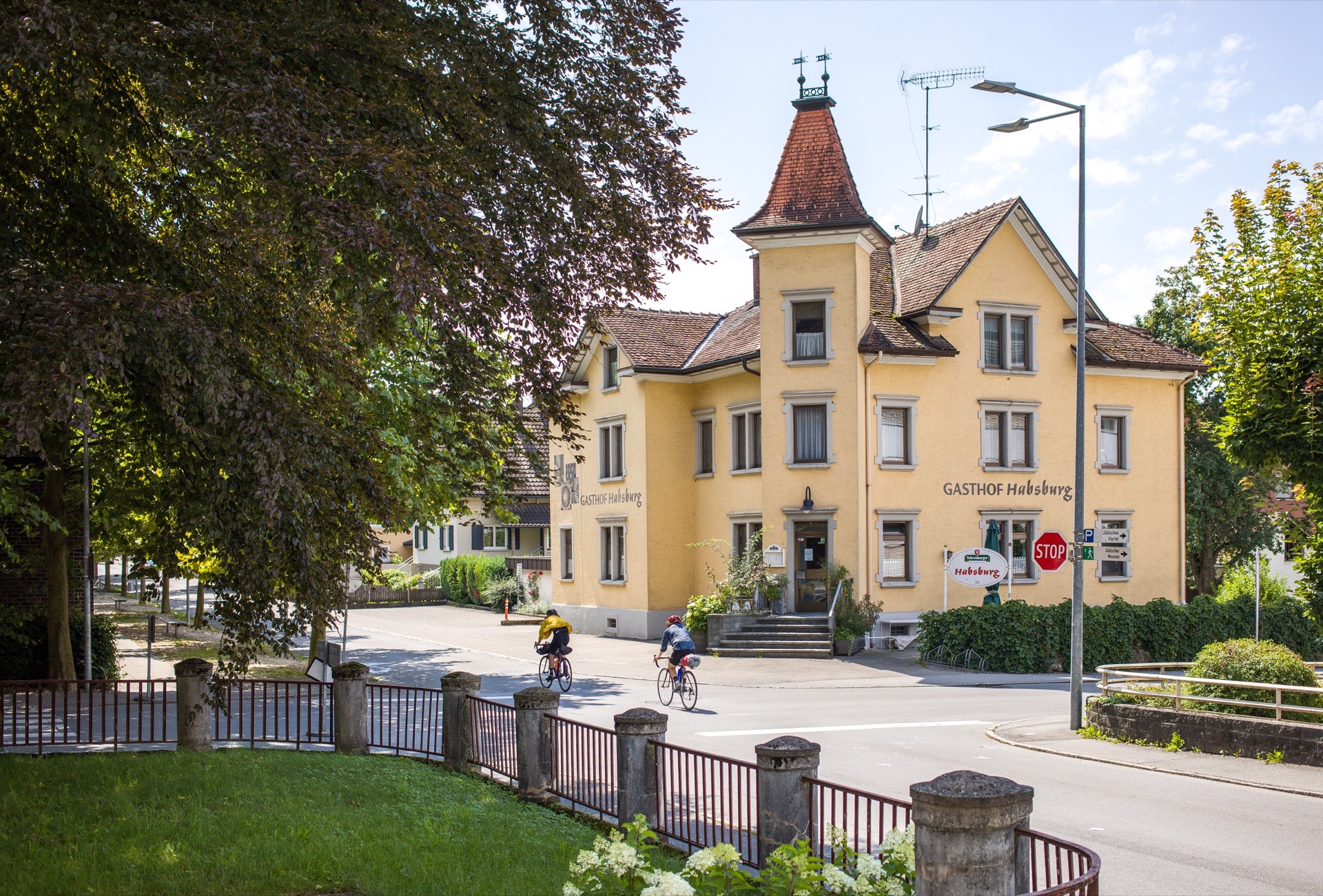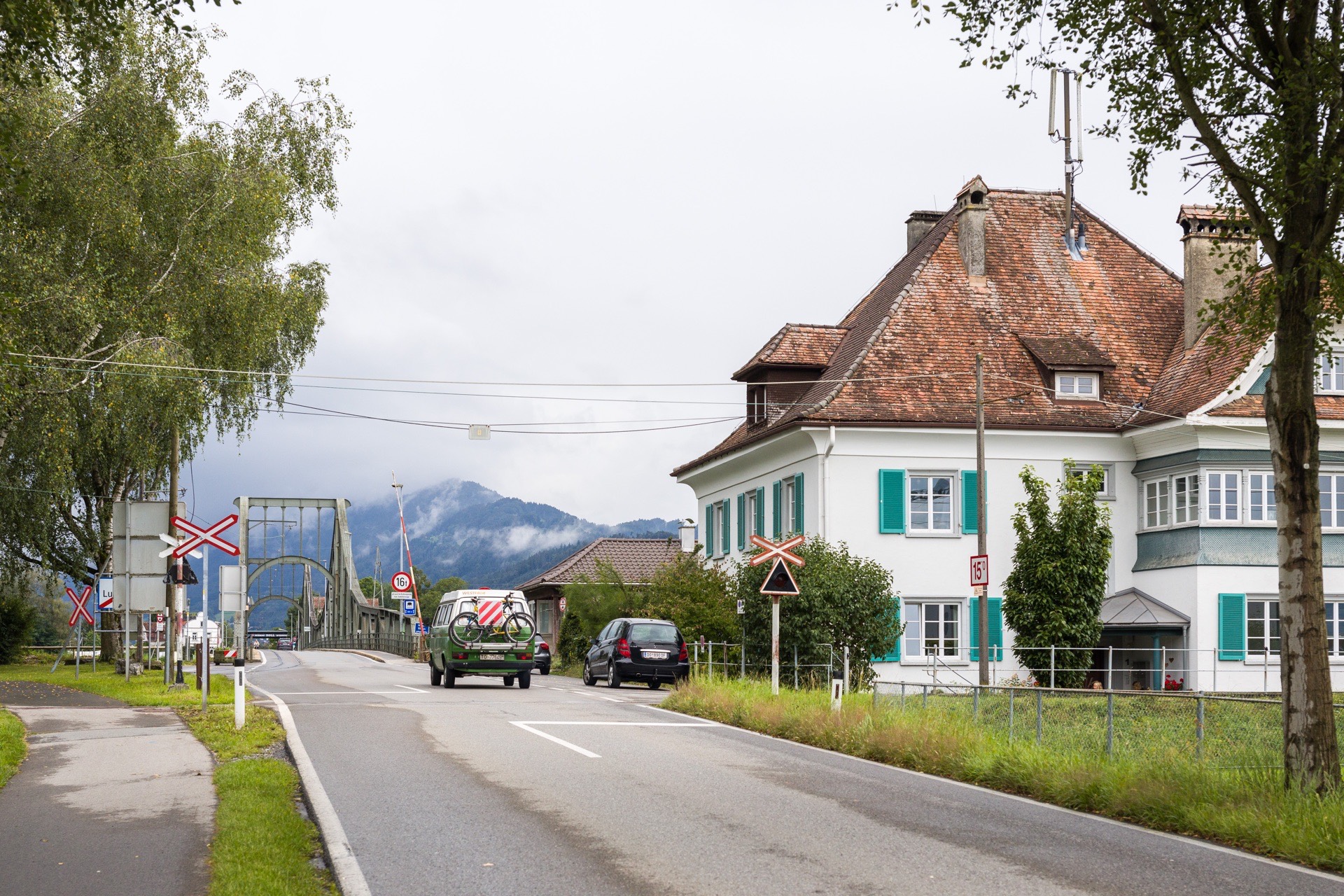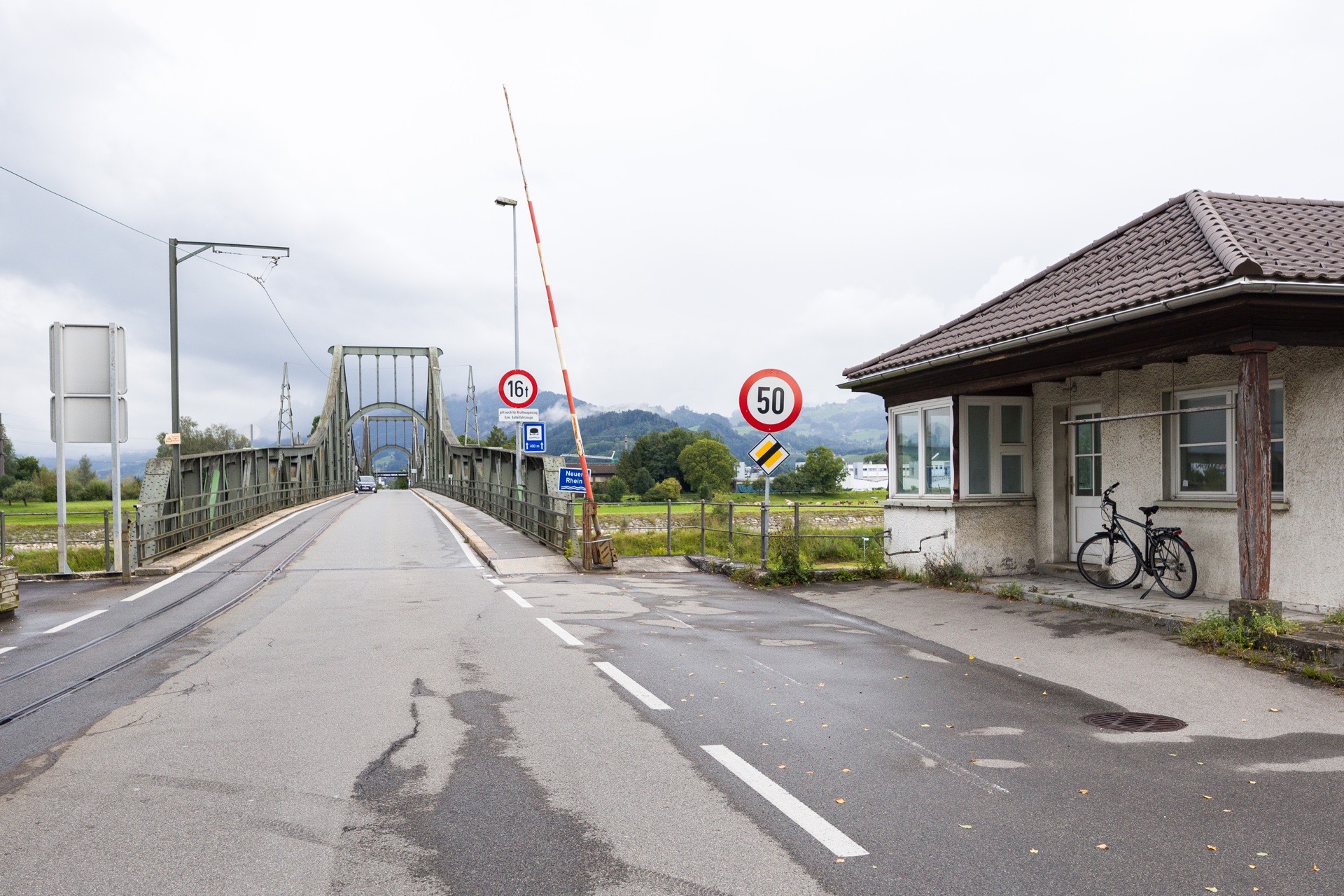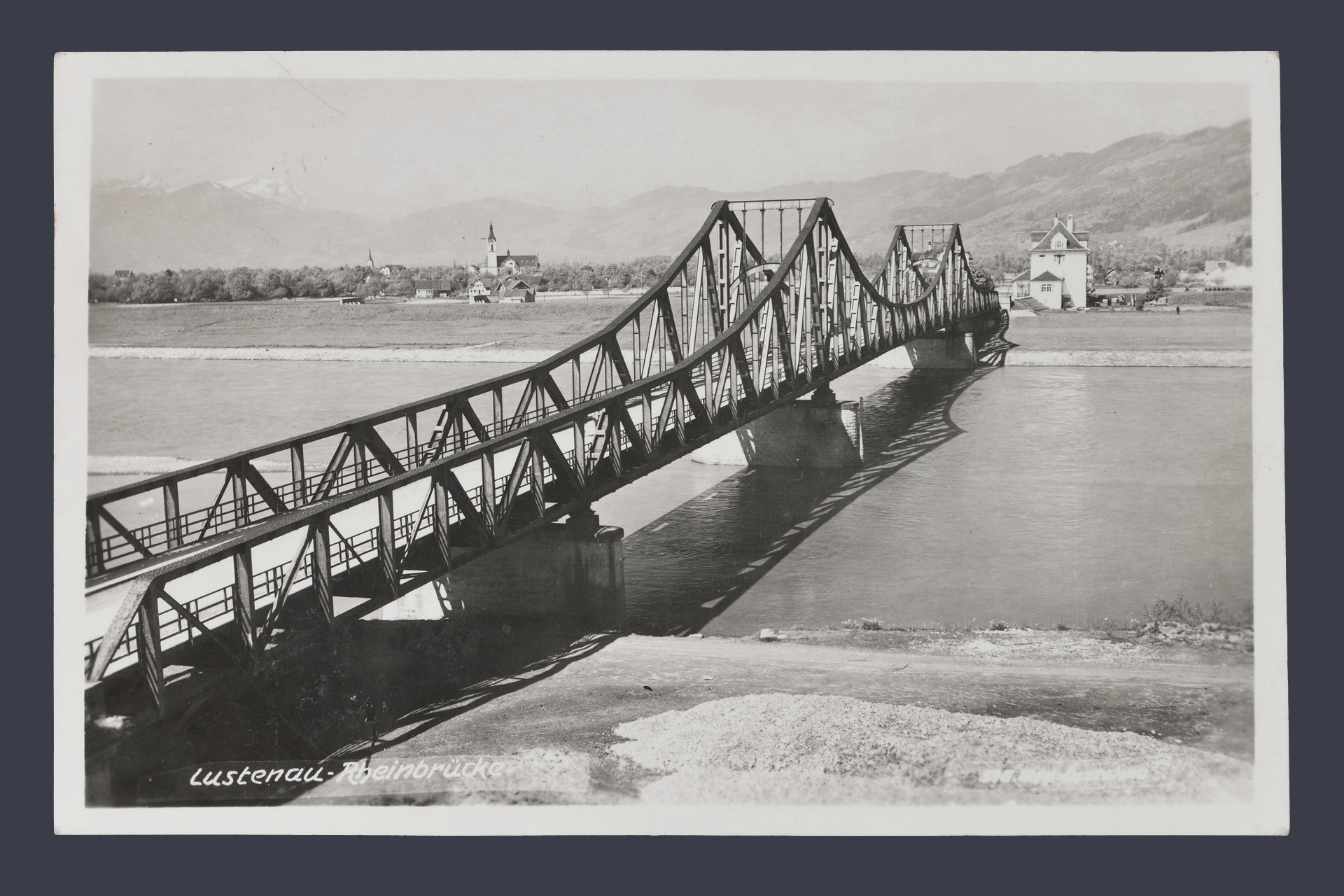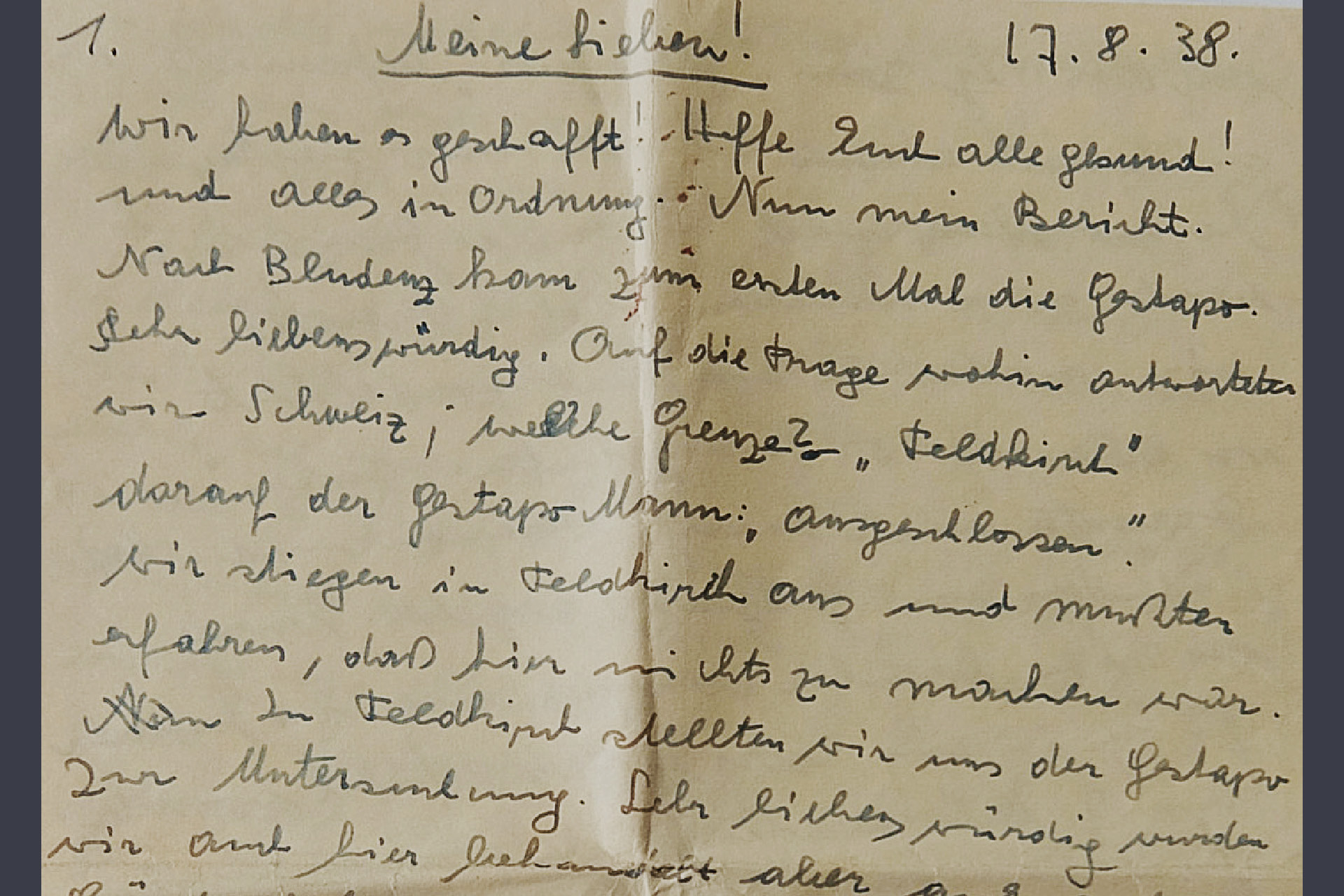Willy Geber> August 17, 1938
16 Willy Geber
“Admired by all of the extremely kind population of Hohenems”. The song writer Willy Geber flees from Vienna to St. Gall
Hohenems – Lustenau, August 17, 1938
Willy Geber, a young song writer and composer from Vienna, has managed to escape across the border near Hohenems to St. Gall. The following day, he writes to his wife in Vienna:
“We made it! Hope you're all well! And everything in order. Now my report. The Gestapo came after Bludenz for the first time. Very friendly. When they asked where we were going, we said Switzerland; which border? ‘Feldkirch’, the Gestapo man replied: ‘out of the question’.
We got off the train in Feldkirch and were told that nothing could be done here. (...) At the station we met some fellow sufferers who advised us to interrupt our journey in Hohenems because something could be done from there. We did so. At the station, we were met by the
‘SS’ with the words: ‘Come with us’. We thought we were arrested and in Dachau. On the way to the ‘prison’ I ‘befriended’ an SS who told me: ‘You'll get across the border, we'll see for it’. Great joy. We were led to an inn where about 50 emigrants were already ‘sitting’. Among them were also some women and girls. After we were given the opportunity to visit the place, we were led in groups of 10 to a separate room where we were examined for the second time (...). Anyone who had already been examined was not allowed to leave the room or come into contact with anyone who had not yet been examined. After the examination we were taken to the garden of the inn, which, guarded by the SS, was our ‘prison’ for the time being. (...) At about 8 p.m., we were ordered to report for duty. There were about 70 of us. Flanked by SS cyclists and infantrymen, we were led through the town in three rows, admired by all of the extremely kind population of Hohenems. It got dark, we marched for about 2 hours and were then divided into 2 groups. The SS told us that they would now take us to the border and then deal with our further conduct. It was already pitch dark. We were in the open. Now, an SS man gave a speech in which he asked us not to engage in atrocity propaganda. The Führer does not approve of atrocities, etc. Now he described the path we had to take. The first 10 men set off. We had to find the big Rhine bridge, about ¾ hour away, and if we were over it, we would be halfway to safety.”[1]
Willy Geber reached Switzerland in the late evening. The small group of refugees gathered the little money they were allowed to keep - 10 Reichsmark per head - to take a taxi to St. Gall. They know they have to get away from the border as quickly as possible. The very next day, Geber is in front of Grüninger, the St. Gall police captain, and is allowed to stay. In St. Gall he founds a pop band of emigrants, the KKK. And composes songs in honor of Paul Grüninger. Soon after, he also succeeds in emigrating to the USA, where he reunites with his family. But his career as a composer of pop songs in the USA came to nothing. He continued to write songs tirelessly, but none found their way onto a record. Geber died in the USA in 1969, impoverished and working in a supermarket.
Recommended reading:
Niko Hofinger, Maneks Listen. Innsbruck 2018
Links:
A Historical Cycle Route leads to 17 historical sites in Lustenau, from the beginnings of settlement to the present day, including the escape routes along the old Rhine.
https://www.lustenau.at/de/freizeit/kultur/historisches-archiv/historischer-radrundweg
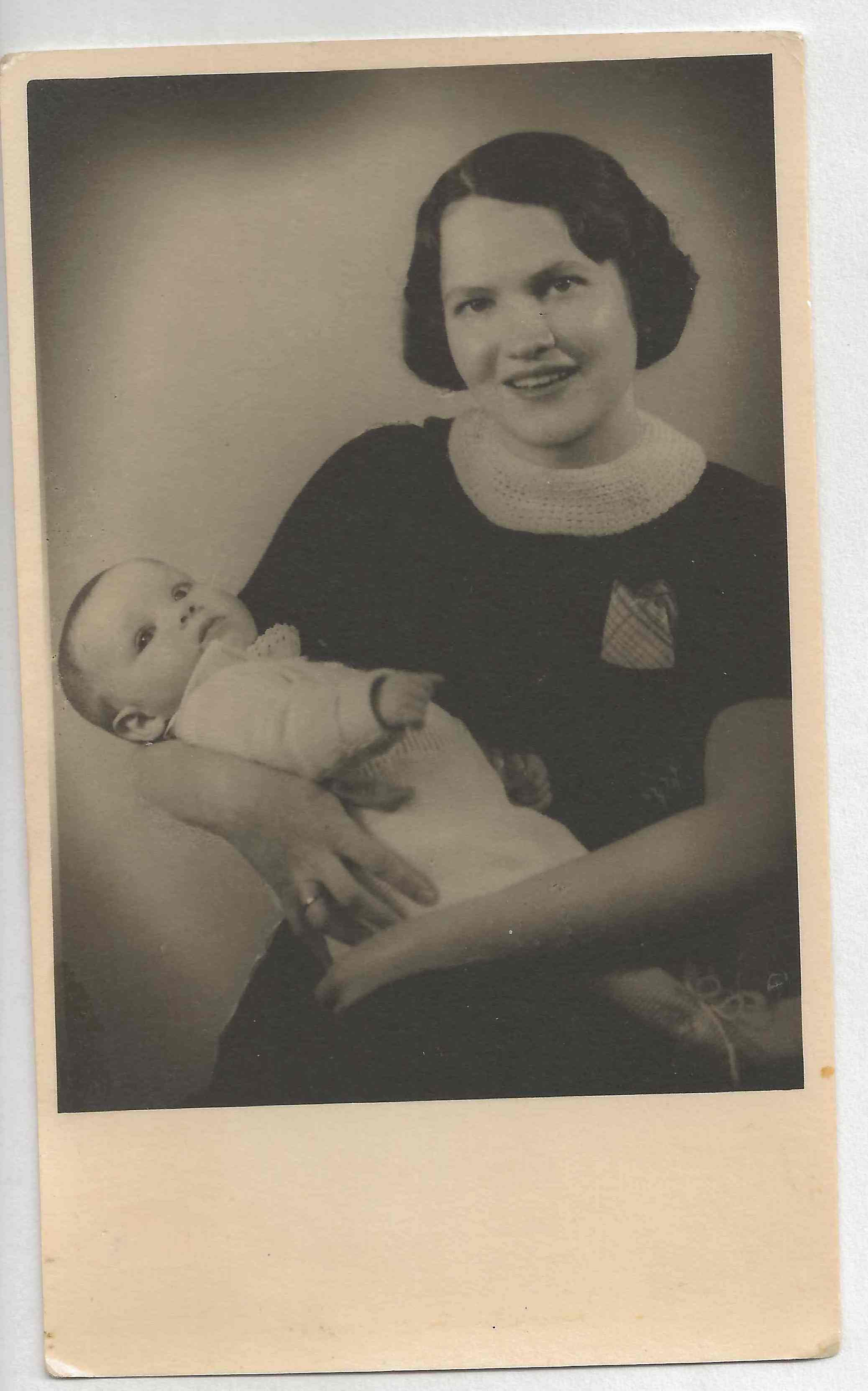
Hansi Geber with her daughter Lore, 1938
Family Archive Geber / Gabrielle Gottlieb, Pacific Palisades
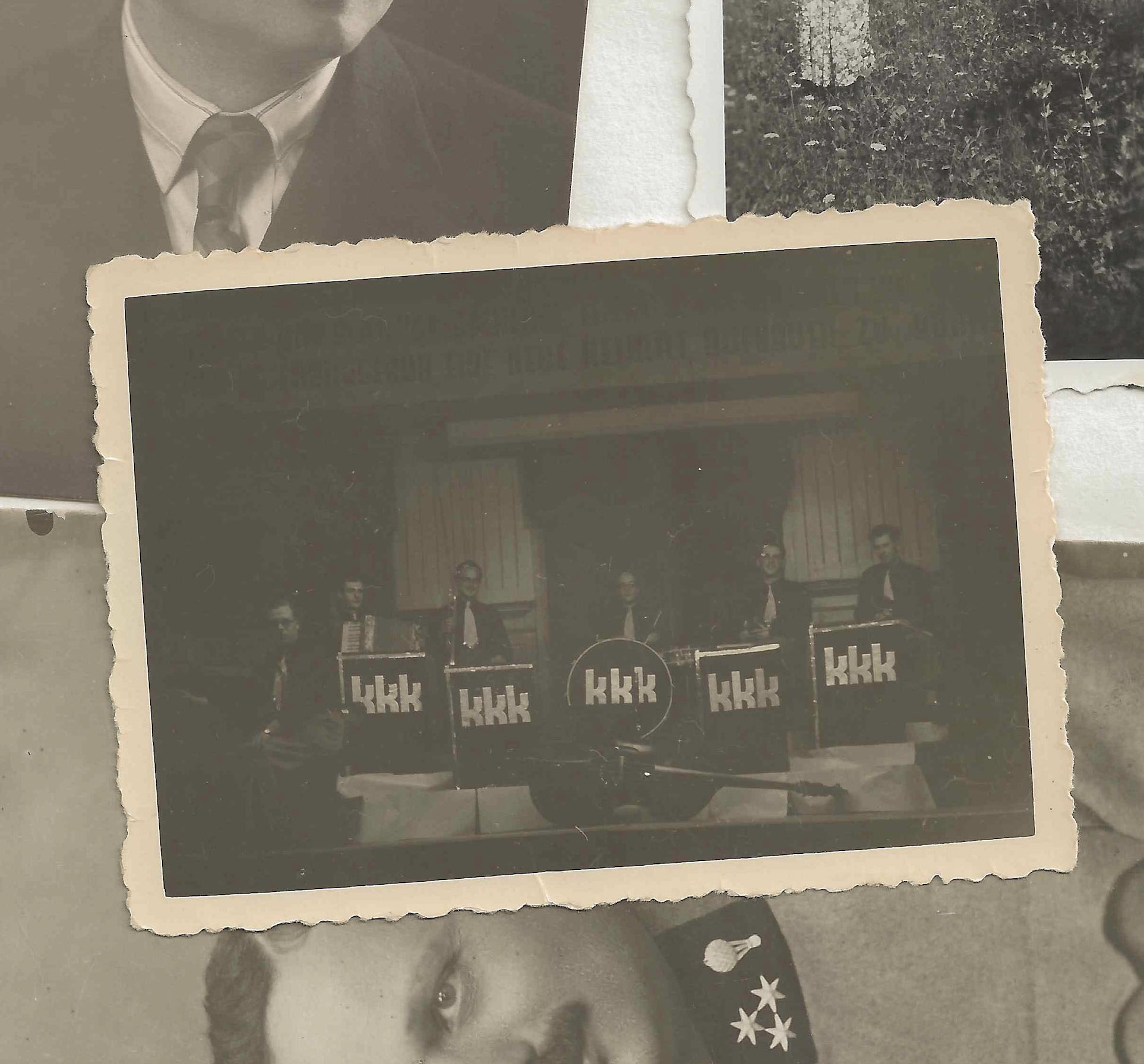
The KKK Ensemble (Art-Culture-Circle-Ensemble) in St. Gall, photo album by Willy Geber
Family Archive Geber / Gabrielle Gottlieb, Pacific Palisades
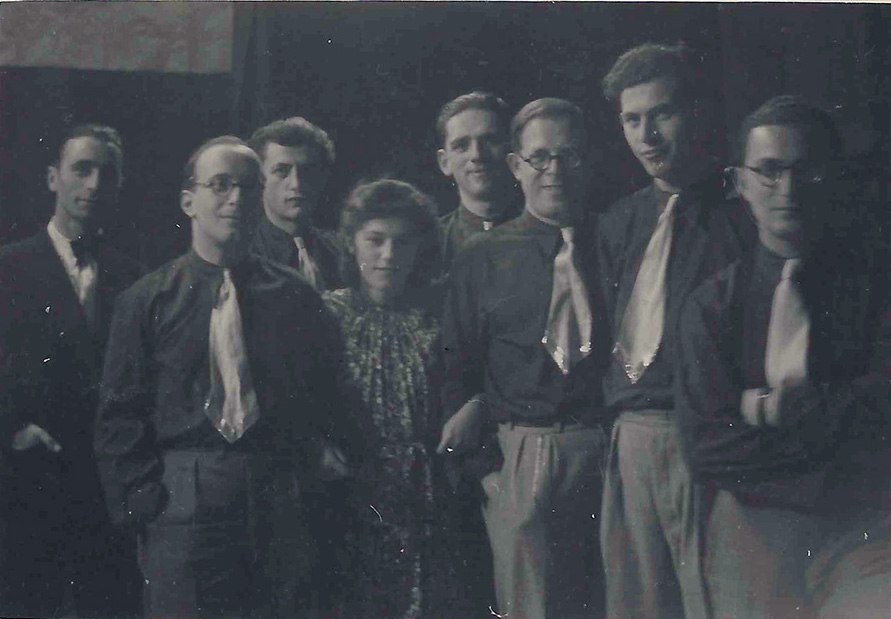
The KKK ensemble (Art-Culture-Circle-Ensemble) in St. Gall, 1939
Family Archive Geber / Gabrielle Gottlieb, Pacific Palisades
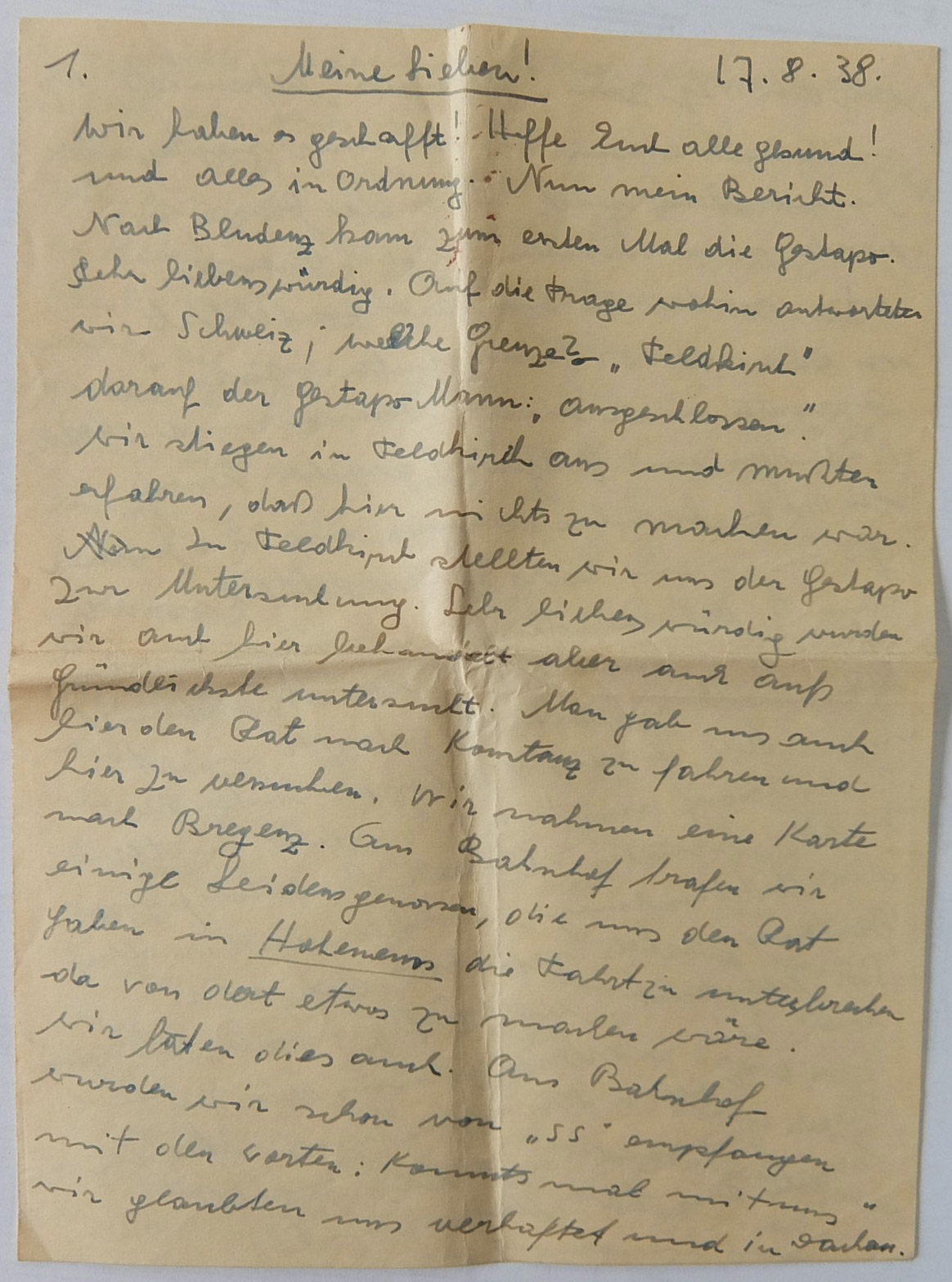
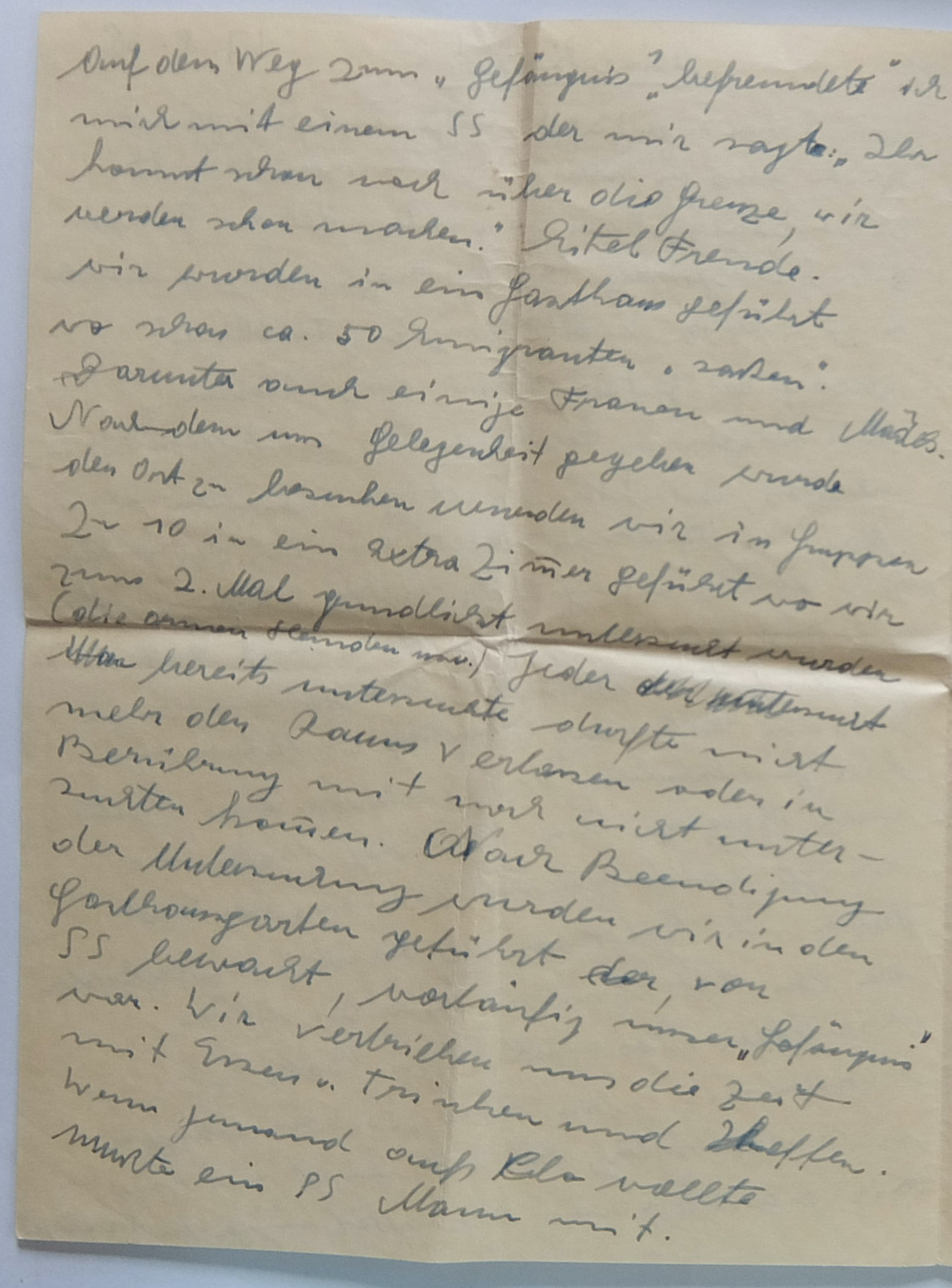
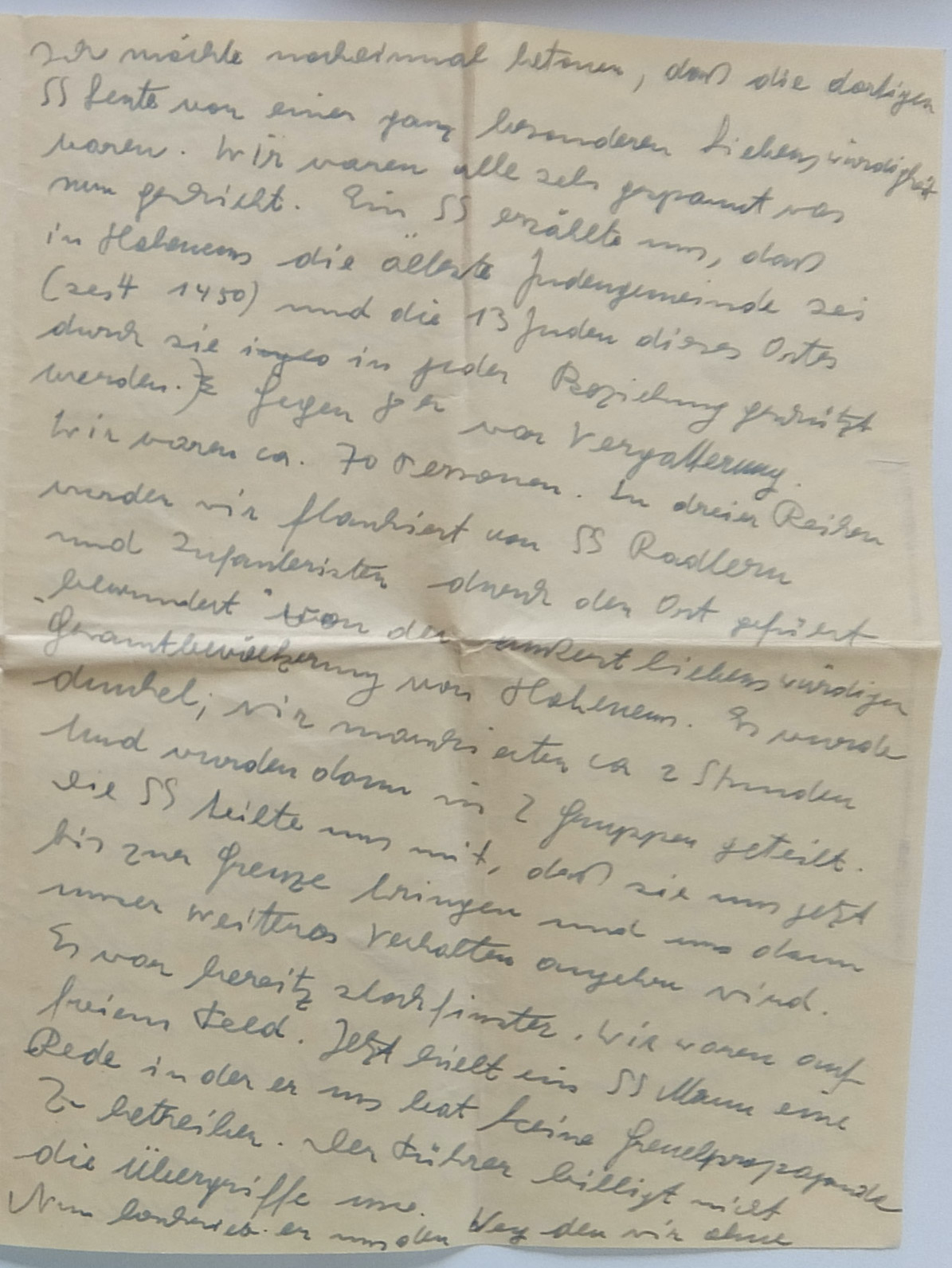
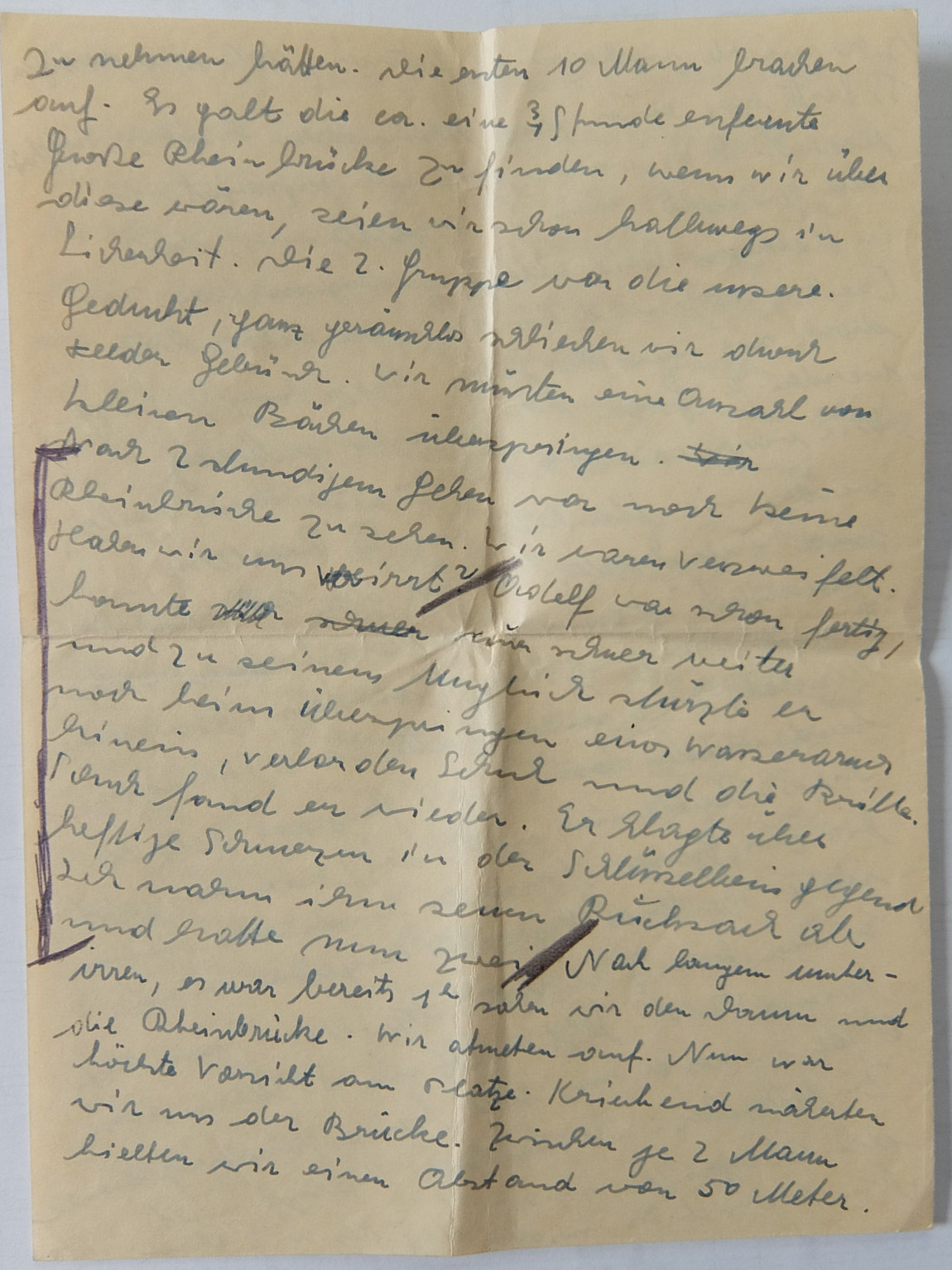
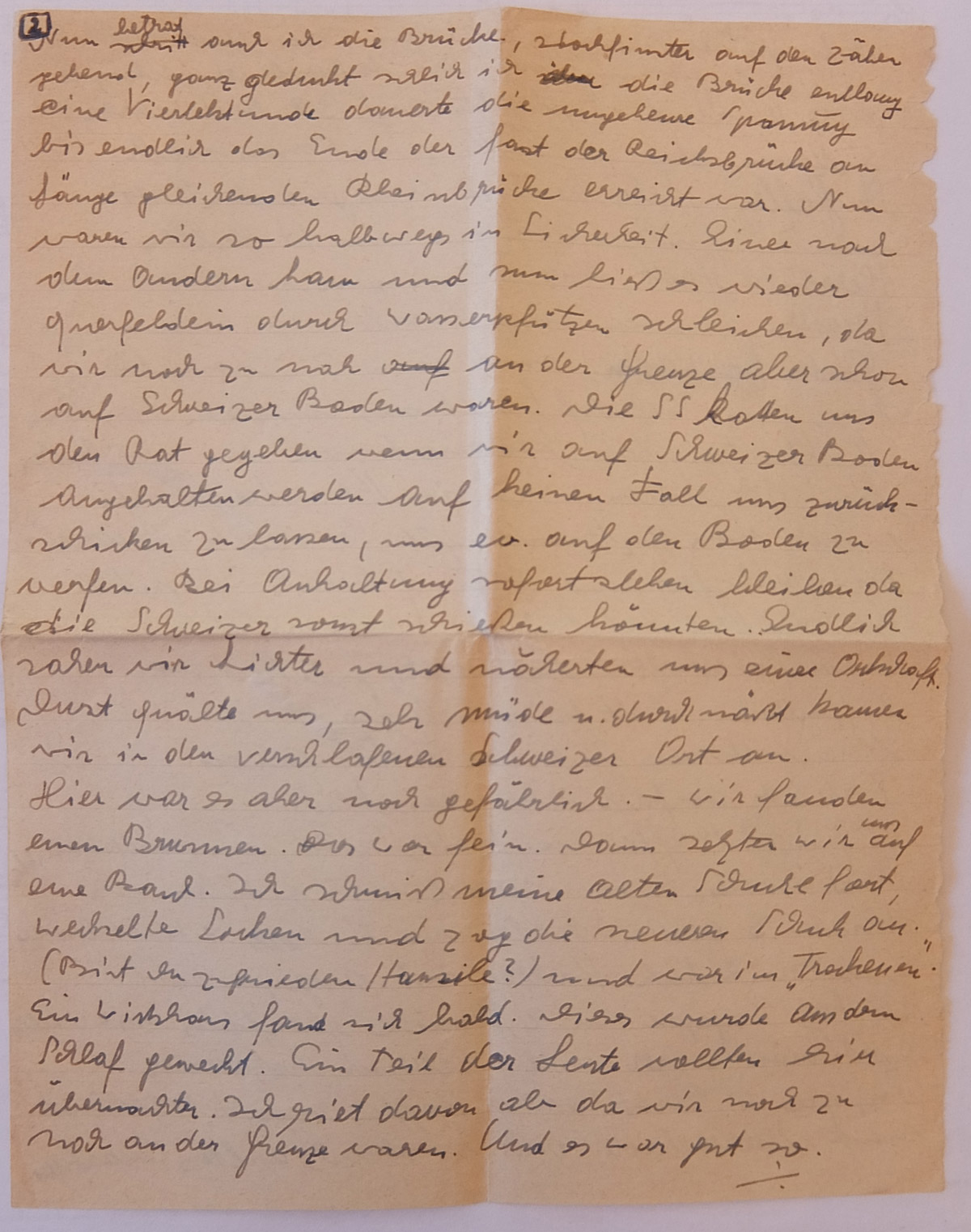
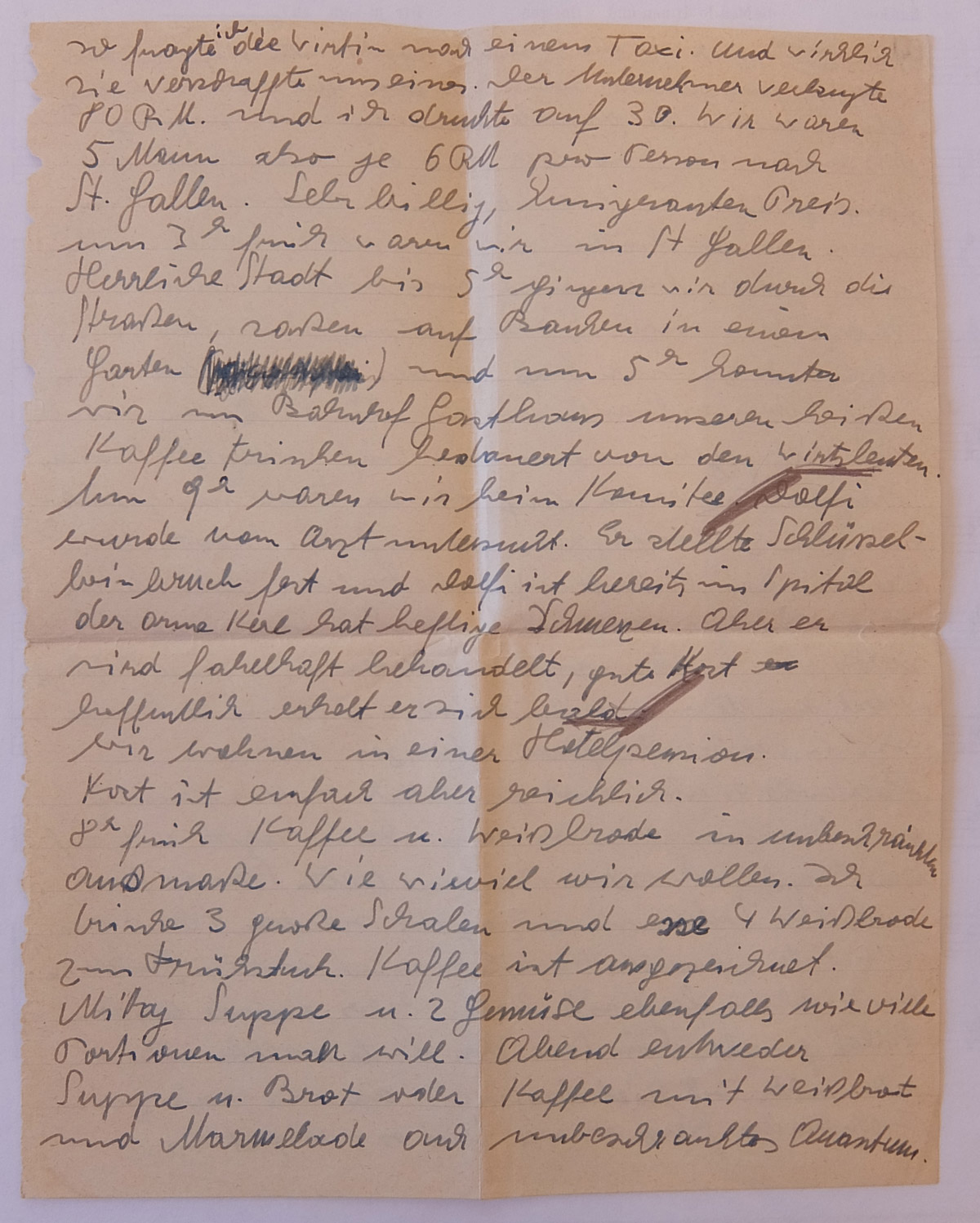
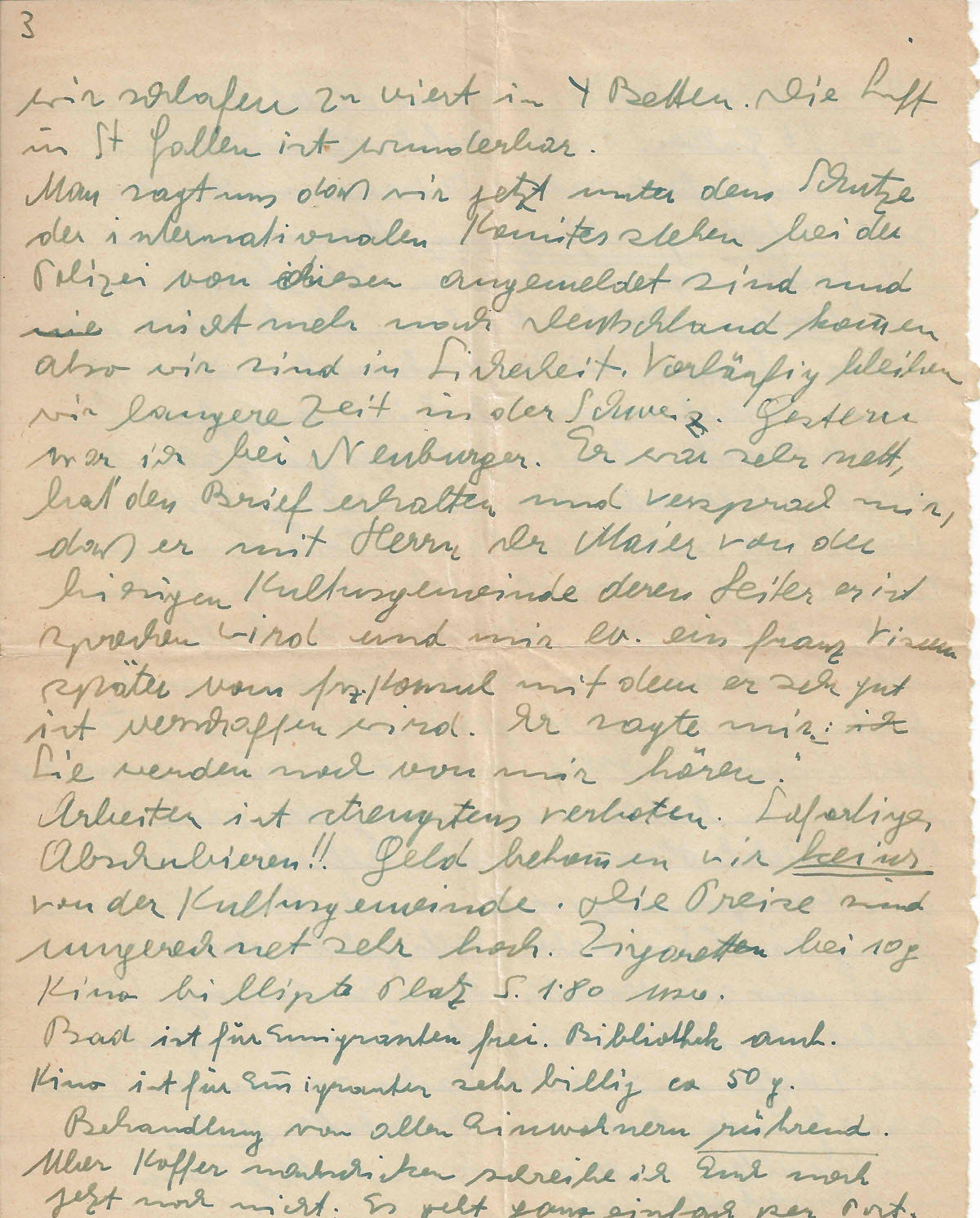
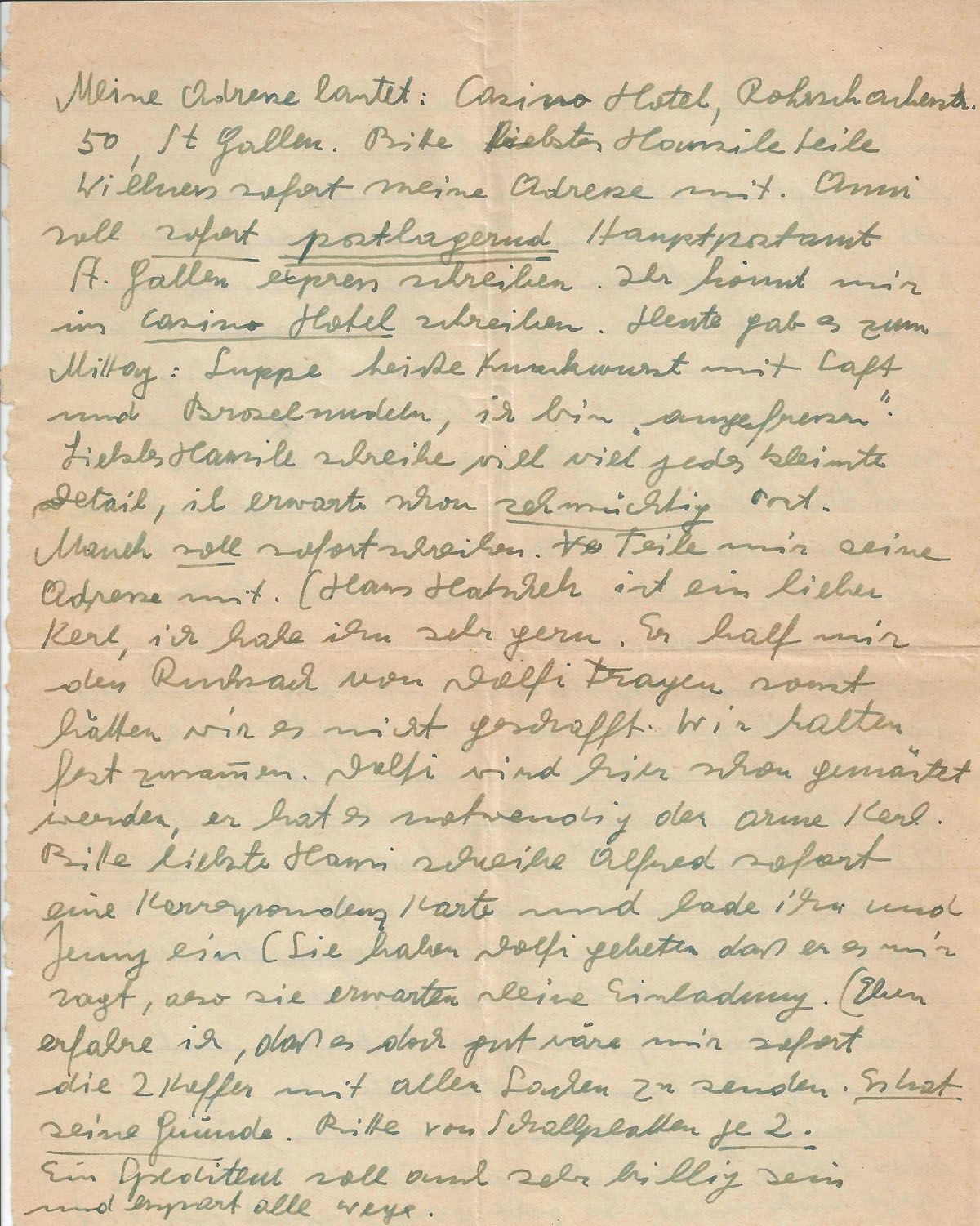
Willy Geber to his wife Hansi, St. Gallen, August 17, 1938
Family Archive Willy Geber / Gabrielle Gottlieb, Pacific Palisades
16 Willy Geber
“Admired by all of the extremely kind population of Hohenems”. The song writer Willy Geber flees from Vienna to St. Gall
Hohenems – Lustenau, August 17, 1938
Willy Geber, a young song writer and composer from Vienna, has managed to escape across the border near Hohenems to St. Gall. The following day, he writes to his wife in Vienna:
“We made it! Hope you're all well! And everything in order. Now my report. The Gestapo came after Bludenz for the first time. Very friendly. When they asked where we were going, we said Switzerland; which border? ‘Feldkirch’, the Gestapo man replied: ‘out of the question’.
We got off the train in Feldkirch and were told that nothing could be done here. (...) At the station we met some fellow sufferers who advised us to interrupt our journey in Hohenems because something could be done from there. We did so. At the station, we were met by the
‘SS’ with the words: ‘Come with us’. We thought we were arrested and in Dachau. On the way to the ‘prison’ I ‘befriended’ an SS who told me: ‘You'll get across the border, we'll see for it’. Great joy. We were led to an inn where about 50 emigrants were already ‘sitting’. Among them were also some women and girls. After we were given the opportunity to visit the place, we were led in groups of 10 to a separate room where we were examined for the second time (...). Anyone who had already been examined was not allowed to leave the room or come into contact with anyone who had not yet been examined. After the examination we were taken to the garden of the inn, which, guarded by the SS, was our ‘prison’ for the time being. (...) At about 8 p.m., we were ordered to report for duty. There were about 70 of us. Flanked by SS cyclists and infantrymen, we were led through the town in three rows, admired by all of the extremely kind population of Hohenems. It got dark, we marched for about 2 hours and were then divided into 2 groups. The SS told us that they would now take us to the border and then deal with our further conduct. It was already pitch dark. We were in the open. Now, an SS man gave a speech in which he asked us not to engage in atrocity propaganda. The Führer does not approve of atrocities, etc. Now he described the path we had to take. The first 10 men set off. We had to find the big Rhine bridge, about ¾ hour away, and if we were over it, we would be halfway to safety.”[1]
Willy Geber reached Switzerland in the late evening. The small group of refugees gathered the little money they were allowed to keep - 10 Reichsmark per head - to take a taxi to St. Gall. They know they have to get away from the border as quickly as possible. The very next day, Geber is in front of Grüninger, the St. Gall police captain, and is allowed to stay. In St. Gall he founds a pop band of emigrants, the KKK. And composes songs in honor of Paul Grüninger. Soon after, he also succeeds in emigrating to the USA, where he reunites with his family. But his career as a composer of pop songs in the USA came to nothing. He continued to write songs tirelessly, but none found their way onto a record. Geber died in the USA in 1969, impoverished and working in a supermarket.
Recommended reading:
Niko Hofinger, Maneks Listen. Innsbruck 2018
Links:
A Historical Cycle Route leads to 17 historical sites in Lustenau, from the beginnings of settlement to the present day, including the escape routes along the old Rhine.
https://www.lustenau.at/de/freizeit/kultur/historisches-archiv/historischer-radrundweg

Hansi Geber with her daughter Lore, 1938
Family Archive Geber / Gabrielle Gottlieb, Pacific Palisades

The KKK Ensemble (Art-Culture-Circle-Ensemble) in St. Gall, photo album by Willy Geber
Family Archive Geber / Gabrielle Gottlieb, Pacific Palisades

The KKK ensemble (Art-Culture-Circle-Ensemble) in St. Gall, 1939
Family Archive Geber / Gabrielle Gottlieb, Pacific Palisades









